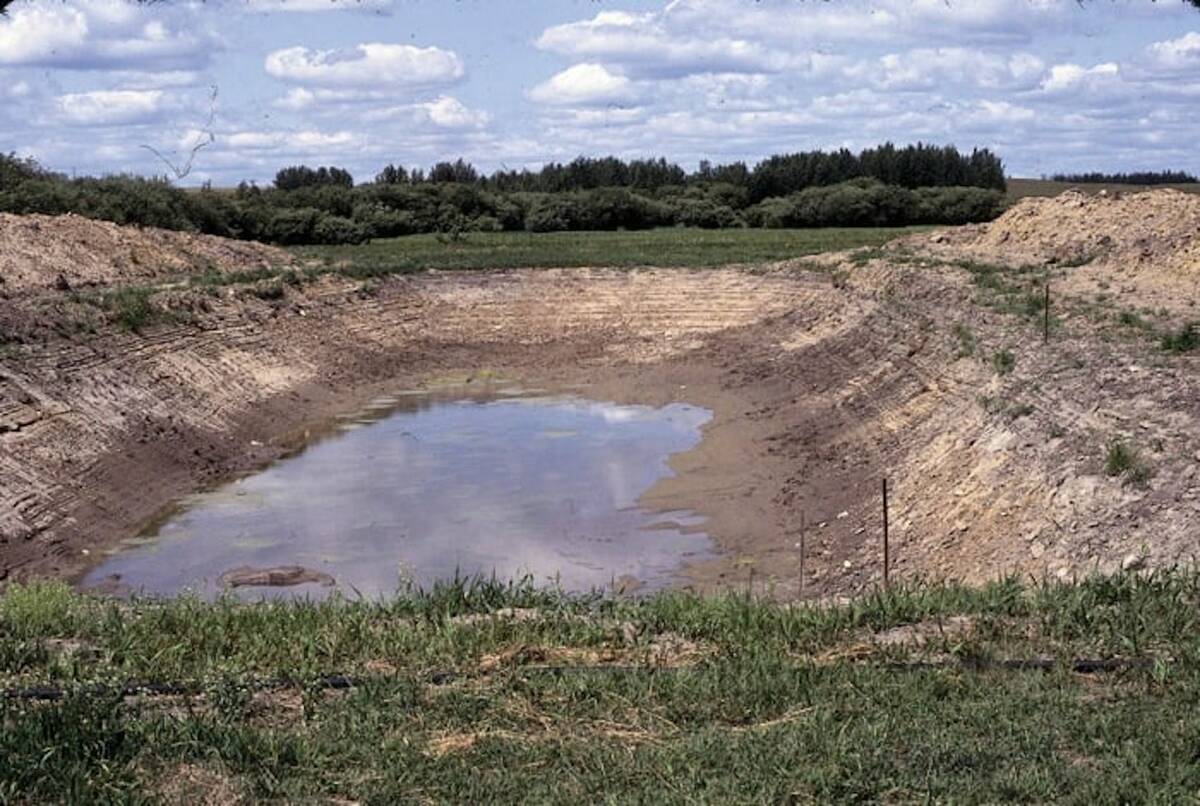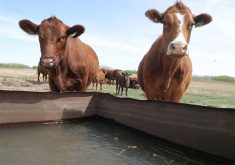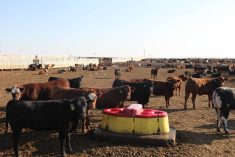LETHBRIDGE, Alta. – Long-term studies on farmland, surface water and ground water have revealed high levels of nitrates and phosphates in southern Alberta water.
“Our preliminary results suggest the nitrate is below the drinking water guidelines in the runoff but the phosphorus is above the drinking water guidelines,” said Jim Miller of Agriculture Canada. He and other researchers outlined some of the study results at a recent water quality workshop held here.
His research team studied runoff from irrigated and dryland sites. They found some herbicides and other chemicals in the ground water at some research sites, said Miller.
Read Also

Dry summer conditions can lead to poor water quality for livestock
Drought conditions in the Prairies has led to an decrease in water quality, and producers are being advised to closely monitor water quality for their animals.
Overloading of nutrients can be caused by manure or commercial fertilizer application. Too much nitrogen and phosphorus also causes excessive plant and algae growth in lakes and rivers.
Chi Chang of Agriculture Canada’s Lethbridge Research Station said repeated heavy manure applications can lead to a buildup of nitrates and phosphorus.
It’s known that spreading manure on farmland improves organic matter, soil tilth, stabilizes soil temperatures, improves water-holding capacity and improves crop productivity. But too many applications of cattle manure at a heavy rate create soil and water problems that take years to detect.
The Lethbridge Research Centre has monitored a number of plots for more than 30 years, said Chang.

















